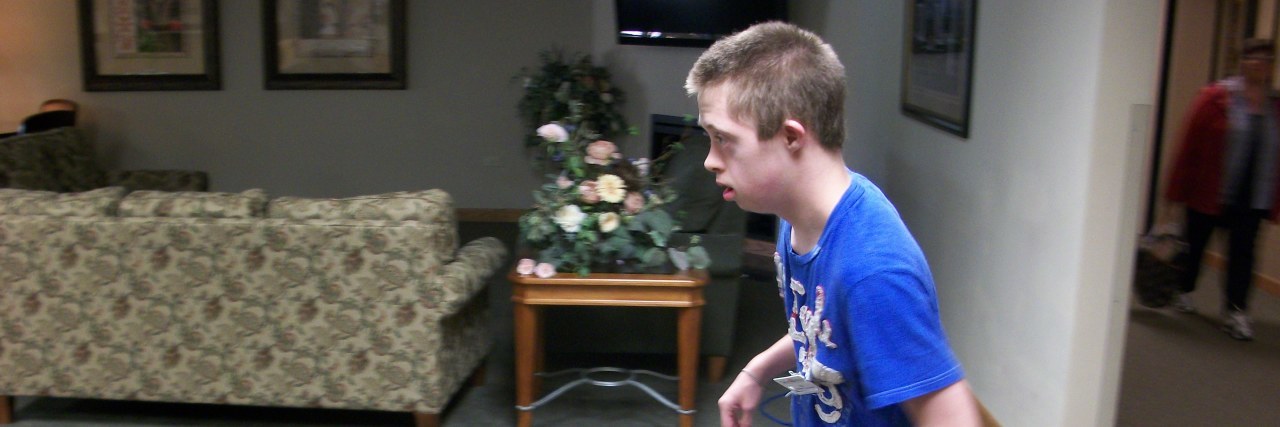When your child has a dual diagnosis of Down syndrome and autism, the game changes. Speech may be limited or a child may be nonverbal, which could lead to behavior problems. Sensory issues can be extreme and interfere with social interactions and learning.
My son, Nick, is 23 years old and has a dual diagnosis of Down syndrome and autism. His speech is limited, and he is a sensory seeker. Over the years, with the help of some amazing teachers, therapists and autism behaviorist specialists, he has developed skills which have allowed him to contribute at work in his adult day-program, and here at home.
So how do you find the key to unlock your child’s potential?
The key lies in identifying your child’s strengths and working to build upon them.
First of all, just because my son’s speech is limited doesn’t mean he can’t communicate. One of Nick’s assets is his receptive language, which is the ability to understand information. Many of his goals in his Individualized Education Plan (IEP), were planned around using this strength when he was in school. Nick was able to develop skills to become more independent in self-help and other jobs at home and school. These skills were enhanced by using educational materials and supports written into his IEP. Such materials included a Picture Exchange Communication System book (PECS) with training for staff, parents and child; Augmentative Alternative Communication (AAC) devices; task strips; social stories; a picture schedule; video modeling; a reward system. All of these supports helped Nick navigate his routine and built upon his functional and independent livings skills.
Besides his receptive language, Nick’s other strengths are his desire to please and take the initiative. He is a taskmaster! When Nick was younger, his teachers pointed out how good he was at matching. A lot of his goals were structured around this.
Nick has always had a keen eye and notices where everything goes around the house. Anytime the batteries died on one of his musical toys, he would go to the kitchen drawer, pull out the screwdriver and hand it to me with the toy. As he grew older, I recall him nudging his older brother over to help unload the dishwasher. He knew which cabinet every single plate, cup, pot, pan and utensil were stored. Shortly thereafter, I let him take over the chore (with no complaints from his older brother, Hank).
Using his strength of taking the initiative, we have built upon this to create other jobs at home and in the community. When he was in school, his teachers recognized his sensory seeking needs and channeled them by doing “heavy work.” An occupational therapist can assist with ideas to implement a sensory diet into your child’s routine. Nick likes to throw and swipe things (and still does). It has helped to find activities with heavy work or ones that mimic this sensory need.
Here are a few of the jobs that does:
- Recycling (replacement behavior for throwing).
- Can crushing (sensory and motor activity and replacement behavior for throwing).
- Carry laundry basket and load the washing machine (heavy work/organizing).
- Put away groceries (organizing activity).
- Empty dishwasher (organizing and sensory activity).
- Cleaning/wiping down countertops and windows (organizing activity).
- Vacuuming (heavy work which is calming).
There is so much your child can learn when you identify their strengths and unique talents. When you find what motivates your child, you can build and expand upon it. Work with your child’s IEP team, therapists and autism specialist, to identify those areas. Then together, as a team, create a plan with specific and measurable goals that will enable your child to grow and be successful. Unlock your child’s potential, and watch them soar!
Follow this journey at Down Syndrome With a Slice of Autism.
We want to hear your story. Become a Mighty contributor here.

